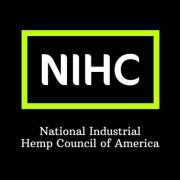
This week, NIHC proudly announced a partnership and welcomed its newest member Food Safety Net Services (FSNS) to its ranks.
FSNS has been a leader in safeguarding our nation’s food supply through its network of accredited laboratories. With a cornerstone focused on safety, FSNS continues to strategically expand national services for food safety, consumer products and nutraceuticals.
We connected with Barry Carpenter, Senior Advisor for Regulatory Affairs & Client Relations for FSNS to ask more about the company and its role in the industry, and, of course, the value they see in NIHC efforts.
 Carpenter (left) has held some very prestigious prior roles in his career. He served for over ten years as the CEO of the North American Meat Institute (NAMI) where he worked closely with government regulators, including new food safety regulations and marketing. He also served for nearly 15 years as the Deputy Administrator for the USDA’s Agricultural Marketing Service, where he oversaw commodity checkoff programs. While at USDA, he represented the United States on the United Nation’s Committee on Agriculture from 1990 until 2006.
Carpenter (left) has held some very prestigious prior roles in his career. He served for over ten years as the CEO of the North American Meat Institute (NAMI) where he worked closely with government regulators, including new food safety regulations and marketing. He also served for nearly 15 years as the Deputy Administrator for the USDA’s Agricultural Marketing Service, where he oversaw commodity checkoff programs. While at USDA, he represented the United States on the United Nation’s Committee on Agriculture from 1990 until 2006.
With all this experience, Carpenter brings sage insight into the potential and future of the hemp industry. Here are his thoughts.
“Checkoff programs provide the resources necessary to develop markets, build consumer confidence, conduct research and provide industry education. These are critical areas of need for the hemp industry.”

What encouraged FSNS to become a patron sponsor of the NIHC?
FSNS recognized that NIHC was optimally positioned to provide leadership for the hemp industry, through their engagement with producers and processors. Further, their Board of Directors has considerable experience and success working with Congress as well as federal and state regulators.
What plans does FSNS have that is making it a leader in safety of this growing industry?
FSNS has 27 years of experience supporting the food and beverage industry. Knowing safety is paramount to gain the confidence of consumers, FSNS will rely on the consistency and credibility of their processes and methodologies to enhance the industry’s image in the marketplace.
What type of standards do you believe need to be had for the CBD industry?
Cannabidiol is very complex! The array of products currently being produced along with new products being developed number in the thousands. The sooner federal and state regulators will establish safety standards, the better. The industry will respond to marketplace demands to establish standards for product quality and consistency. As the market matures, users of CBD will demand certain product attributes, and industry standards will evolve.
How do you see what FSNS does in other areas of food safety translating to making sure consumers have safe CBD?
FSNS has a team of highly skilled scientists and technicians that are continually working to improve methods and processes. Further, they rely on internal controls and outside audits to verify their performance. Processors will build their reputation and brand identity by providing consumers with safe products that consistently meet their expectations. FSNS provides those support services to the food and beverage industry and will do the same for the CBD industry.
As you’re aware, NIHC is also pursuing a checkoff program for hemp. Considering your prior work with the USDA under the Agricultural Marketing Service with oversight of checkoff programs, what challenges do you see for the hemp industry in establishing a checkoff program?
The major challenge faced by all new checkoff programs is getting buy-in from the producers and processors. Drivers of the checkoff program will need to educate the producers so they are willing to take a leap of faith, and ultimately realize a return on their investment.
How do you believe a hemp checkoff program would help the industry?
Checkoff programs provide the resources necessary to develop markets, build consumer confidence, conduct research and provide industry education. These are critical areas of need for the hemp industry.
Barry, you have been a leader for many years in other industries to build momentum and encourage strict standards, as well as achieved much within your government work. With all that context, what excites you the most about the potential of the hemp industry, both within the U.S. and globally?
The growth potential for hemp products is enormous. The industry has only scratched the surface of potential products and uses for the many derivatives of hemp. As the industry becomes more organized and focused, the growth will be astronomical. I am especially excited to help NIHC be a significant part of this transition.
What short- or long-term obstacles do you see that the industry should work to overcome?
Short-term, the industry needs to invest in research to provide regulators with the information they need to establish safety standards. Concurrently, sampling and testing methodologies need to be validated and standardized.
Long-term, the industry needs to work towards providing more clarity and consistency on product performance. Further, to be successful long term, the industry needs to focus on efficiencies and new technologies in the production and processing sectors to enhance sustainability.






 Carpenter (left) has held some very prestigious prior roles in his career. He served for over ten years as the CEO of the North American Meat Institute (NAMI) where he worked closely with government regulators, including new food safety regulations and marketing. He also served for nearly 15 years as the Deputy Administrator for the USDA’s Agricultural Marketing Service, where he oversaw commodity checkoff programs. While at USDA, he represented the United States on the United Nation’s Committee on Agriculture from 1990 until 2006.
Carpenter (left) has held some very prestigious prior roles in his career. He served for over ten years as the CEO of the North American Meat Institute (NAMI) where he worked closely with government regulators, including new food safety regulations and marketing. He also served for nearly 15 years as the Deputy Administrator for the USDA’s Agricultural Marketing Service, where he oversaw commodity checkoff programs. While at USDA, he represented the United States on the United Nation’s Committee on Agriculture from 1990 until 2006.

 NIHC continues our work to serve as a credible resource to government officials in developing sound, common-sense regulations of America’s hemp economy. As part of those efforts, we have continued to engage the U.S. Senate Committee on Agriculture on a range of issues that have the potential to be included in 2023 farm bill development and negotiations anticipated to begin as early as this fall.
NIHC continues our work to serve as a credible resource to government officials in developing sound, common-sense regulations of America’s hemp economy. As part of those efforts, we have continued to engage the U.S. Senate Committee on Agriculture on a range of issues that have the potential to be included in 2023 farm bill development and negotiations anticipated to begin as early as this fall.











